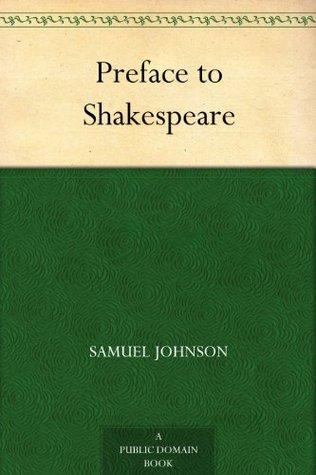"He seems," says Dennis, "to have been the very original of our English tragical harmony, that is, the harmony of blank verse, diversified often by dissyllable and trissyllable terminations. For the diversity distinguishes it from heroick harmony, and by bringing it nearer to common use makes it more proper to gain attention, and more fit for action and dialogue. Such verse we make when we are writing prose; we make such verse in common conversation."
This final sentence, n.b., is two lines of blank verse:
Such verse we make when we are writing prose; we make such verse in common conversation."


